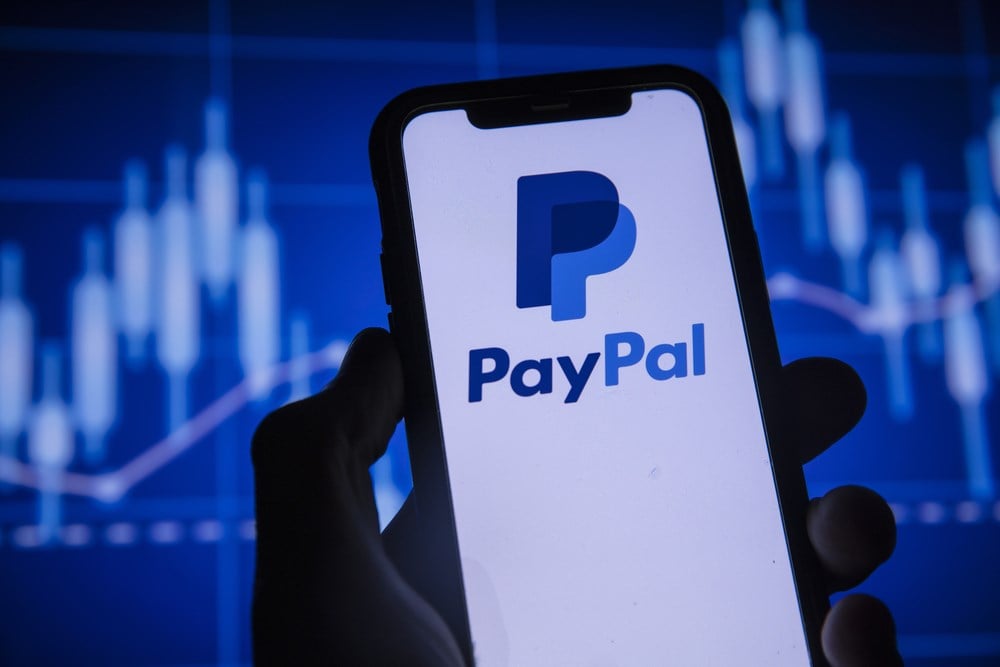
Despite having once been one of the better stocks to own for exposure to the e-commerce industry, PayPal Holdings Inc (NASDAQ: PYPL) has recently fallen on hard times. Its shares have been sinking since they last tagged an all-time high in July 2021, when the pandemic had more people buying online than ever before, and it's been a painful 80% drop since then.
They're currently trading back at 2017 levels, and in many ways, it's as if the hyper-growth years and 400% rally never happened. But for those of us on the sidelines, a stock's past trading history matters less and less with each passing day.
The reality is that across several metrics, PayPal is getting cheaper and cheaper. The question is, at what point does it make sense to take advantage of this, and could we be approaching the point at which to start loading up?
What Makes It Cheap
One of the most used metrics to measure a stock's value, in an is-it-expensive-or-cheap sense, is its price-to-earnings (PE) ratio. The single figure that results from this ratio shows the multiple of current earnings investors that will pay for a stock today.
Different industries will have different PE averages, and the macro environment matters, too. For example, when the Fed had interest rates at record lows in years gone by, it was common for high-growth tech companies to have PE ratios in the triple digits, if not higher. Tesla Inc (NASDAQ: TSLA) famously commanded a four-digit PE ratio once upon a time.
This was, and might still be, considered acceptable by investors if rates are sufficiently low so as to make it cheap for the company in question to borrow the funds it needs to drive earnings up. But once rates rise, the path to earnings growth gets steep very quickly.
Once investors catch on to this, the share price tends to get hurt. Throughout 2020 and 2021, PayPal had a PE ratio in the 60s and 70s. But as investors' confidence in the company's ability to deliver the growth needed to justify it dipped, so did their share price.
One silver lining on the 80% slide in shares is that PayPal's current PE ratio is at an all-time low of 16. For comparison, Amazon.com Inc (NASDAQ: AMZN), another well-known e-commerce stock, commands a PE ratio of 99 today.
Even taking Mastercard Inc (NYSE: MA) into consideration, as a payments-related peer, their PE ratio of 38 also goes a long way to making PayPal feel cheap right now.
Current Headwinds
Trading off a price-to-earnings ratio by itself isn't good enough, though, and the broader picture must be taken into account. Some of the challenges facing PayPal, which have played a large part in its shares decline, include slowing growth and increasing competition.
It was growth, the kind that accelerates, though, which one had PayPal shares trading over $300, but when you consider their gross profit alone is up 1% this year versus 22% in 2020, the exodus of investors is understandable.
Analysts like Lisa Ellis at MoffettNathanson are also concerned about what they're calling "fierce competitive pressure" from the likes of Apple Pay, Venmo, and Braintree, and PayPal's sluggish response. It was for this reason Ellis and the team there downgraded their rating on PayPal to Market Perform last week.
Long Term Potential
But it's not all doom and gloom, however. PayPal's trailing 12-month revenue is at an all-time record, with their most recent quarterly revenue print coming in a shade under last December's all-time high. They've also consistently been turning a profit, which is a lot more than many of their high-flying pandemic peers can say right now.
Signs of slowing growth in both revenue and profits have been hurting shares, there's no doubt about that, but for readers with long-term investment horizons, this could also be a golden buying opportunity. PayPal's margins are improving, their total payment volumes are growing, and a PE ratio of 16 makes the risk/reward profile here pretty attractive.
It feels like the worst-case scenario has been baked into shares, and there's little that PayPal has to convince investors that the long-term potential isn't being given enough consideration.














